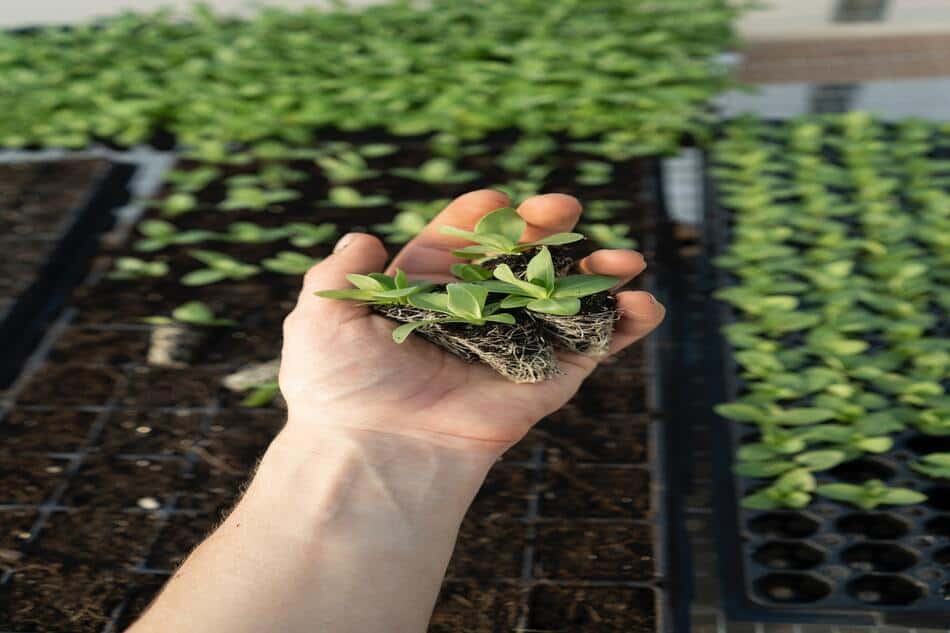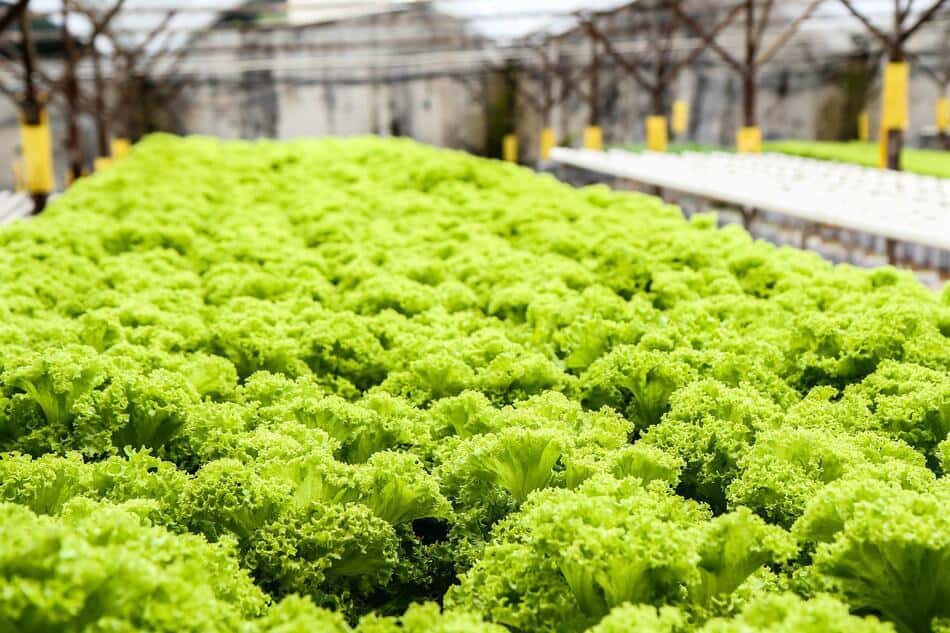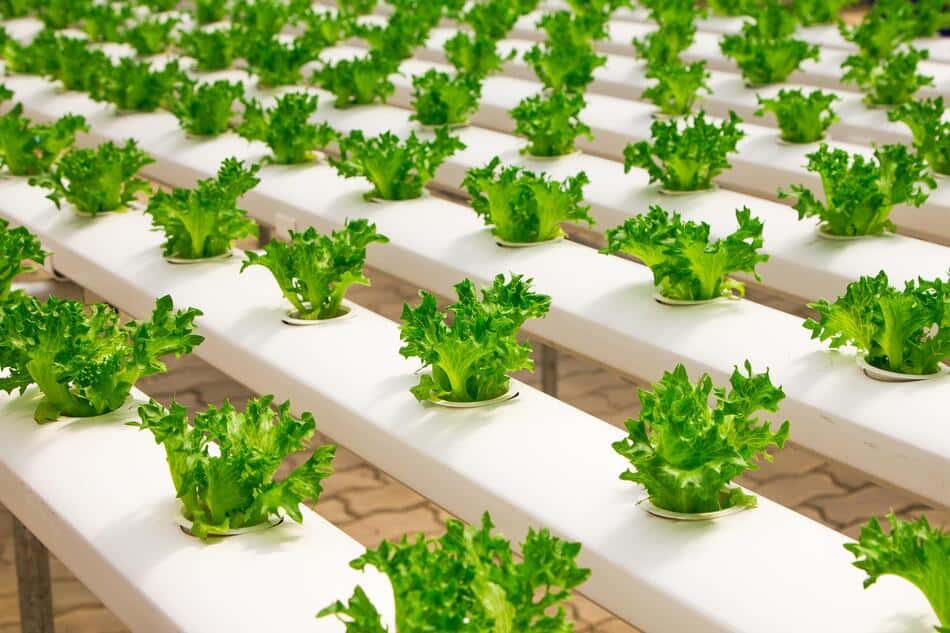With the global population expected to grow to over 9 billion by 2050, the need for sustainable and efficient farming practices is greater than ever. Many people are turning to hydroponic farming as a solution, but is it profitable? Let’s take a closer look.
Hydroponic farming can be profitable. However, it depends on several factors, such as the type of hydroponic setup you have, the crops you grow, and the market for those crops. In general, though, hydroponic farms can be more efficient and productive than traditional farms, so they have the potential to be quite profitable.
The Future Of Hydroponic Farming
The future of hydroponic farming is looking very bright. With the ever-increasing global population and the consequent demand for food, it is estimated that by 2050, the majority of fruits and vegetables will be grown using hydroponics. This method of farming has many advantages over traditional farming, including a smaller land footprint, less water usage, and less need for chemical pesticides and fertilizers.
As the world becomes increasingly aware of the importance of sustainability, hydroponic farming will only become more popular. This type of agriculture is much more efficient than traditional farming, meaning that it can be done on a smaller scale and still provide enough food for a large population. Additionally, because hydroponic farms can be located indoors, they are not as susceptible to the vagaries of weather.

Some challenges need to be addressed before hydroponic farming can live up to its potential. One of the biggest challenges is ensuring that the plants receive enough light. Plants were grown in greenhouses or under artificial lighting often do not receive enough of the right kind of light, which can stunt their growth. Additionally, hydroponic farms need to be designed in a way that minimizes water usage and prevents contaminants from getting into the water supply.
Despite these challenges, hydroponic farming is poised to become one of the most important methods of food production in the coming years. As the world population continues to grow and the demand for food increases, hydroponic farming will become increasingly necessary to meet the world’s food needs.
Also Read: Why Are My Hydroponic Plants Wilting?
The Costs Of Setting Up A Hydroponic Farm
The biggest cost when it comes to setting up a hydroponic farm is the initial investment. You will need to purchase equipment and materials, which can cost several thousand dollars. In addition, you will need to set up a space for your farm, which will likely require some renovations.
Initial Investment
The initial investment for a hydroponic farm can be expensive. You will need to purchase equipment like grow lights, ventilation, and pumps. The cost of these items can range from hundreds to thousands of dollars.
Ongoing Costs
There are also ongoing costs associated with hydroponic farming. For example, you will need to purchase nutrients and grow media regularly. Additionally, you will need to pay for electricity to power the equipment.
Labor
Hydroponic farming can be labor-intensive. You will need to carefully monitor the system and make sure that the plants are getting the nutrients they need.
While hydroponic farming can be expensive and labor-intensive, it can also be quite profitable. The key to success is to carefully manage your costs and produce a high-quality product. If you can do this, then you can make a good profit from hydroponic farming.
Read Relevant Article: Are Hydroponic Strawberries Organic?
The Profits That Can Be Made From Hydroponic Farming

1. Increased Yields
Hydroponic systems can produce up to 30% more than traditional soil-based methods.
2. Less Water Usage
With hydroponics, you can use up to 98% less water than with conventional farming methods.
3. Fewer Pests And Diseases
By growing your plants in a controlled environment, you can avoid many of the pests and diseases that affect soil-based plants.
4. Reduced Need For Fertilizers
Hydroponic systems use nutrient-rich solutions to feed plants, so they require less fertilizer than traditional farming methods.
5. Increased Flexibility
Hydroponics allows you to grow plants in places where soil-based farming is not possible, such as on rooftops or indoors.
6. Year-Round Production
With hydroponics, you can grow plants year-round, regardless of the weather outside.
7. Faster Growth Rates
Hydroponic plants typically grow 20-25% faster than soil-based plants.
8. Higher Quality Produce
Hydroponically grown fruits and vegetables are often crisper and more flavorful than those grown in soil.
9. Increased Profits
With all of the benefits that hydroponic farming offers, it’s no surprise that many farmers are choosing to switch to this method of production. By doing so, they can increase their yields, reduce their water usage, and improve the overall quality of their produce – all of which lead to increased profits.
Tips For Running A Profitable Hydroponic Farm
1. Keep your costs low.
2. Use efficient growing methods.
3. Sell directly to consumers.
4. Market your farm well.
5. Diversify your products and services.
6. Offer value-added products and services.
7. Stay up to date on industry trends.
8. Manage your finances carefully.
9. Plan for the future.
10. Have a passion for what you do!
Also Read: How To Grow Microgreens Hydroponically?
If you want to be successful in hydroponic farming, it is important to keep your costs low while using efficient growing methods. One way to do this is to sell directly to consumers. This will allow you to bypass the middleman and get more profits from your products.
It is also important to market your farm well. Make sure that potential customers know about your business and what you have to offer. Diversifying your products and services is another great way to increase profits. Offer value-added products and services that will make your customers want to come back.
Finally, it is important to stay up to date on industry trends. This way you can anticipate changes and be prepared for them. by following these tips, you can be successful in hydroponic farming and make a good profit.
Conclusion
The profitability of hydroponic farming is evident when I consider the many benefits it has to offer. By taking into account all of the factors involved in this type of agriculture, from production costs to crop yields, I can see that hydroponics is a sound investment for any farmer. With growing interest in sustainable and healthy food options, hydroponic farming is sure to continue its growth as an important part of our agricultural landscape. Have you considered starting a hydroponic farm? If so, what questions do you still have? Let me know in the comments below!

